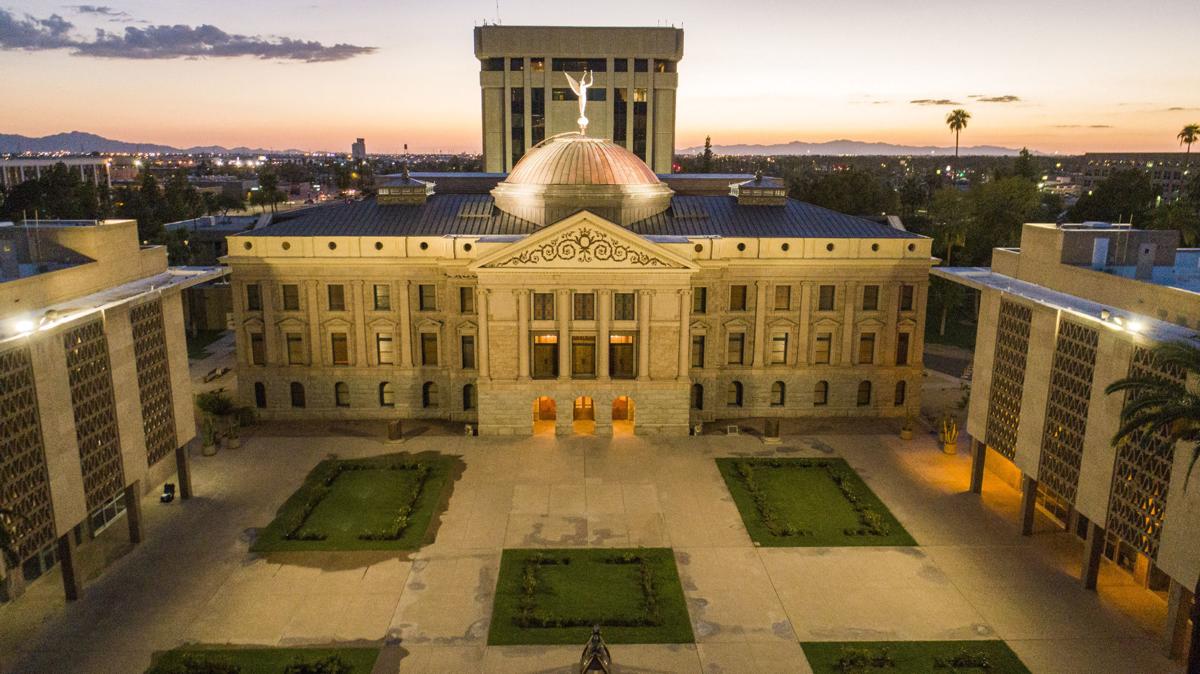PHOENIX — Legislators voted Thursday on multiple fronts to curb the power of this governor and future governors to declare and maintain emergency orders.
With no discussion, the Senate gave preliminary approval to Senate Concurrent Resolution 1001. If it gets final approval by the Senate and later by the House, it would immediately terminate the pandemic emergency that Gov. Doug Ducey declared nearly a year ago.
The resolution, written by Sen. Michelle Ugenti-Rita, R-Scottsdale, says the Republican governor’s March 11 emergency order has interfered with individual rights. It specifically refers to the stay-at-home edicts Ducey issued early in the pandemic.
While those have been allowed to expire, Ugenti-Rita said other Ducey actions remain, including restrictions on how some businesses can operate, which she said have wreaked havoc on the economy.
Ducey could terminate the emergency on his own. But he has repeatedly said his powers continue to be needed.
This measure, which now needs a final roll-call vote in the Senate before going to the House, uses a constitutional provision that allows the Legislature, by a simple majority, to declare the emergency over.
But Ducey could have the last word. A recent opinion by Republican Attorney General Mark Brnovich said that, under the current constitutional provisions, the governor remains free to issue a new emergency order.
There are separate legislative efforts designed to keep that from happening, at least by future governors.
House Concurrent Resolution 2037 was approved by the Republican-led House on a 31-28 party-line vote. It would allow a simple majority of state lawmakers to call themselves into special session to consider and review any gubernatorial emergency. Currently, a vote by a two-thirds margin is needed in order to do that.
Separately, the Senate gave preliminary approval to SCR 1010. It would require a governor to call a special legislative session any time he or she declares an emergency.
In both cases, that would give lawmakers the power to review what the restrictions the governor imposed and decide for themselves whether they are appropriate.
Nothing in either measure would affect the current emergency order. That’s because a constitutional change requires voter approval. And that can’t happen until November 2022.
But Rep. John Kavanagh, R-Fountain Hills, who wrote the House version, said there is a need to revisit the decades-old laws for the next time a governor declares an emergency.
“What we have now is absurd,” he told colleagues.
“What we have now are emergency procedures that were created for floods and hurricanes and fires, local short-lived emergencies, not pandemics,” Kavanagh said.
He said the governor has been given broad — and pretty much unquestionable — powers to act. “Pandemics are statewide and they’re long-lasting and the current procedures don’t work,” Kavanagh said.
Sen. Kelly Townsend, R-Mesa, author of the Senate measure, said it’s a simple matter of the constitutional right of a republican form of government.
“And that’s not what we had this last year,” she said.
“We had one person and his advisers making decisions on behalf of the entire state,” Townsend said. “And I would challenge anyone to say that the state and the people in the state were satisfied with those decisions.”
Kavanagh said his measure is not a total power grab.
He said if whoever is governor doesn’t like the changes the Legislature has made, he or she has the right to “protest,” essentially a form of a veto. A vote of 60% of lawmakers would then be needed to override.
The concept of legislators second-guessing the governor during emergency situations raised concerns for Rep. Randall Friese, D-Tucson.
“In a pandemic, very specifically, when decisions need to be made expeditiously to address rapid spread, I think one person with the advice of experts, and the guidance of their agencies like the Department of Health Services, making those decisions is less problematic than 90 people,” Friese said.
He asked if having the Legislature decide wouldn’t slow the process to the point of being ineffective.
Kavanagh and Townsend both said nothing in the measure would stop the governor from declaring an emergency and issuing immediate orders. But it would ensure the Legislature is in session and has a voice.
Friese said he agrees, in essence, with the idea of giving the Legislature a voice in future emergencies. “We should have, as a Legislature, some sort of automatic approval or something,” he said. Friese also said there should be some simple procedure for lawmakers, at some point, to review the declaration.
But he said future emergencies could require rapid — and unilateral — action.
“One thing we know for sure is these viruses will evolve, these viruses will become more and more difficult to manage,” said Friese, who is a physician. And if there isn’t quick action, he said the impact on Arizona could be even more pronounced than it has been.
“We will have businesses close for much longer, we will have hospitals at capacity,” Friese said.
“We will have much more people sick and dying,” he continued. “And if we put too many triggers and make it too easy to undermine the plan of the executive, on the advice of many, many specialists and scientists and those people who are trained to respond to these things ... we could be causing ourselves a lot of grief.”





